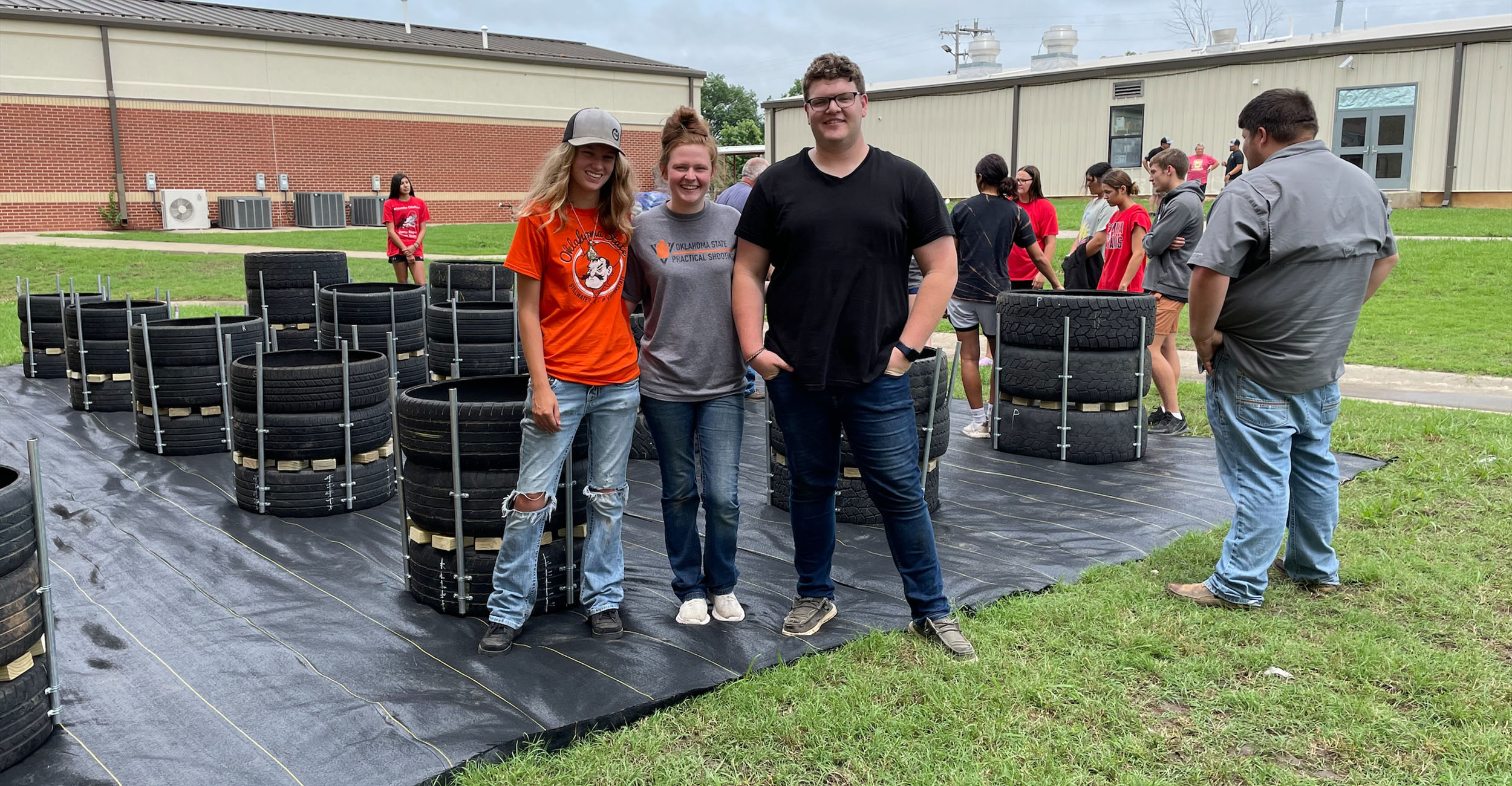
Recycled tire gardens yield learning experiences
Thursday, November 10, 2022
Media Contact: Trisha Gedon | Sr. Communications Specialist | 405-744-3625 | trisha.gedon@okstate.edu
A Hughes County recycled tire garden project has been recognized as a finalist for the Keep Oklahoma Beautiful Environmental Excellence award. The program focuses on teaching Choctaw Nation youth and adults to grow and market culturally relevant crops.
KOB has recognized and rewarded Oklahomans for their environmental efforts for 32 years.
The recycled tire garden project was part of a Federally Recognized Tribes Extension Program grant through the U.S. Department of Agriculture that installed tire gardens in various parts of Hughes County to provide education on growing produce, said Shelley Mitchell, Oklahoma State University Extension associate specialist for youth programs, and served as principal investigator on the grant. The program also included educational elements and improvements to greenhouses and school gardens throughout the Choctaw Nation.
“The tire gardens were designed by horticulture consultant Steve Upson to use old tires for something good and keep them out of the landfill,” Mitchell said. “We worked with Scott Robison, community health director at the Wewoka Indian Health Center, who chose the sites for the gardens.”
Gardens were built at Holdenville Elementary School, Holdenville Indian Community Center, Wetumka Public Schools, the Wetumka Indian Community Center and Muscogee Nation Nutrition Center. Students painted the tire gardens and will manage them at the school sites. Tribal elders will manage the gardens at the nutrition and community centers.
Robison said the gardens will serve as a place to grow culturally relevant crops.
“Gardening is a way of life for our people. Eating food from the earth is a symbol of strength, health and wellness,” he said. “Today, our Native people are one of the unhealthiest populations. We’ve gotten away from our natural way of life. Through these gardens, we’re trying to teach our kids that gardening is very native to our culture.”
He said the gardens provide an additional learning opportunity for youth because many are not exposed to gardening at home. The students will be able to learn more about where their food comes from and understand that living from the land was a natural way of life for their ancestors.
In addition to gardening skills, Robison said the recycled tire project includes plans to incorporate nutritional education, cooking demonstrations, recipes and more.
“Overall, we want our youth to understand what it means to have a healthy lifestyle, which includes eating fresh fruits and vegetables,” Robison said. “Gardening is a good form of exercise, which is good for both our students and our elders.”
Students in Wetumka Public Schools put their tire gardens to use by growing radishes and are currently cultivating different lettuces.
“Our horticulture class partnered with our fifth and sixth grade science classes for this project,” said Donna McGee, Wetumka School superintendent. “They grew and harvested two kinds of radishes, and the cafeteria served them on our salad bar. The students really took pride in the fact that they grew food that is being served to the whole school.”
McGee said this cross-curriculum teaching has been successful in the school, and they plan to continue to use the garden throughout the year. They’ll research different fertilizers and different mixtures of soil to help determine the best methods for growing. Following the lettuce harvest, students are planning to plant pansies in the winter and possibly some bedding plants for next spring.
“Getting youth involved in gardening is a great way to teach them not only about where our food comes from but also the science behind what it takes to grow food,” Mitchell said. “Recycling tires that would have just gone to the landfill is an added bonus to this project.”
